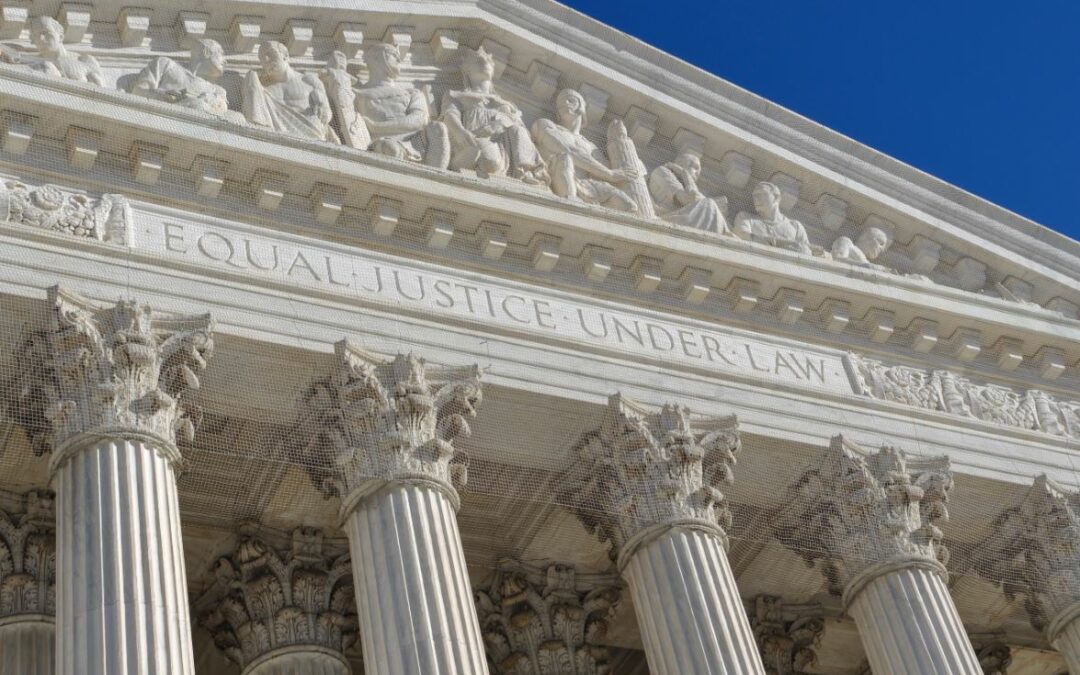Freedom and Equality Win the Latest Supreme Court Rulings
Cristina Cevallos
All eyes were fixed on the U.S. Supreme Court, the last week of June 2023. The cases before the court were of high interest to many as the justices debated such important issues as affirmative action and whether employees and business owners would have to choose between being faithful to their religion or their livelihoods.
Groff v. DeJoy
In the case of Gerald Groff, this mail carrier from Pennsylvania believes, like millions of Christians around the world, that Sundays should be reserved for rest and worship. There were small accommodations made, over the years, for Mr. Groff, but when he was required to deliver Amazon packages on Sunday – no exceptions – he decided he had no choice but to resign from his eight-year-job.
Groff asked the US Postal Service to accommodate his beliefs by scheduling shifts so that he didn’t have to work on Sundays, but the Third Circuit Court of Appeals held in May 2022 that it would create an “undue hardship” on the business. This standard determines whether employers can deny religious accommodations and was established on Title VII of the Civil Rights Act of 1964 and confirmed by a Supreme Court case from 1977, Trans World Airlines v. Hardison.
“Undue hardship” was understood to arise when imposing “more than a de minimis cost” on the business, but employees tended to get away simply by pointing to trifling, minimal effects or “lost efficiency”. However, the Supreme Court decided to review Groff’s case and concluded that a trivial burden is not an “undue hardship”, hence employers must accommodate an employee’s religious beliefs unless it can show that doing so would result in significant difficulty or expense on the business. This decision applies to all workplaces with more than 15 employees in the U.S., protecting those who seek to sanctify their work, honor holy days, take prayer breaks during the day, dress according to their religious beliefs, etc.
Creative 303 v. Elenis
Another decision awaited by many was Creative 303 v. Elenis regarding Lorie Smith, a specialist in graphic and website design. Before expanding her business, she wanted to post a message on her studio’s website to make clear that she was only going to accept requests for heterosexual weddings. Yet, she realized that Colorado banned those types of messages. Actually, writing for the majority, Justice Neil Gorsuch explained that this anti-discrimination law could allow the government to force workers to say or do things they do not believe in the pain of penalty.
After battling her case, in a 6–3 decision, the Supreme Court ruled that the First Amendment protects Americans from government-mandated speech, therefore, freedom of expression protects professionals who trade in their expression from being forced to create expressive designs speaking messages with which they disagree. In short, the government can’t force Americans to say things they don’t believe.
President Joe Biden and Colorado officials have declared that they will enforce federal laws to “protect Americans from discrimination based on gender identity or sexual orientation” since, according to them, this encourages businesses to claim a First Amendment free speech right to refuse service to certain customers.
They didn’t seem to catch the meaning of the ruling, at all, because it does not allow business people to discriminate against customers on the basis of their sexual orientation. “Disagreement isn’t discrimination, and the government can’t mislabel speech as discrimination to censor it. Lorie works with everyone, including clients who identify as LGBT. As the court highlighted, her decisions to create speech always turn on what message is requested, never on who requests it” said ADF CEO Kristen Waggoner, who defended Lori in Court.
Photographer Elaine Huguenin, floral artist Barronelle Stutzman, photographer and blogger Emilee Carpenter and cake artist Jack Phillips have also been accused of discrimination, these and many other businessmen can breathe a little easier knowing that it is unconstitutional for the state to force an individual to create works of art, say things, or participate in delivering messages to which they disagree.
Students for Fair Admissions v. Harvard
Another case t controversial and closely watched decision was the overturning of Grutter v. Bollinger (2003) and Regents of the University of California v. Bakke (1978) which validated some affirmative action in college admissions. In a 6-3 decision, the Court determined that Harvard’s and University of North Carolina’s admissions programs violate the Equal Protection Clause of the Fourteenth Amendment. Therefore, the use of affirmative action policies to discriminate against applicants by giving preference to Black, Hispanic, Native American and other “minority students” at US higher education colleges and universities is unconstitutional.
By accepting race-based admissions programs in which some students may obtain preferences on the basis of race alone, fewer Asian American students were admitted to the university, violating the Equal Protection Clause’s standard that “race may never be used as a negative”. Chief Justice John Roberts wrote: “students must be treated based on his or her experiences as an individual — not on the basis of race”, an important truth that seems to be forgotten nowadays.
Biden v. Nebraska
And as a cherry on the top in a terrible week for the US President Biden, in a 6-3 decision, justices held that his administration couldn’t cancel more than $430 billion in student loan debt. Biden had claimed that a federal law (Heroes Act) gave the Secretary of Education power to waive or modify any statutory or regulatory provision applicable to student financial assistance programs. However, as Justice Roberts wrote, “the authority to modify statutes and regulations allows the Secretary to make modest adjustments and additions to existing regulations, not transform them.”
The court also stated that the cancellation program was a clear act of executive overreach knowing that Congress has repeatedly rejected student loan cancellation bills recently. This ruling protects a lot of hardworking Americans and taxpayers because forgiveness would be unfair to those who either paid their way through college, repaid their loans or never attended at all. It should also push universities to reduce their costs by eliminating unnecessary expenses and focusing on providing a good education.
It was a big month for those who value religious freedom and pro-family values! In general, one can say the US Supreme Court has ruled in favor of individual liberties and equality. The court made clear that these values and goals are not achieved through impositions that negatively affect some to benefit others. Last year we saw that the Supreme Court was an ally in the defense of freedom and June 2023 did not disappoint. We welcome a continuation of this trajectory!
______________________________________________________________________

Cristina Cevallos is a Peruvian Law professional. She is passionate about issues related to cultural heritage and the defense of traditional values, especially the sanctity of life and religious freedom. She has been part of different volunteer and entrepreneurship programs internationally and loves doing projects with children, going to the beach, and learning about art history. Her goal is to travel the world helping people to find true happiness.

